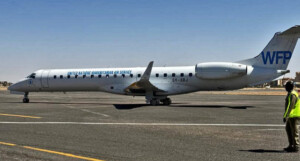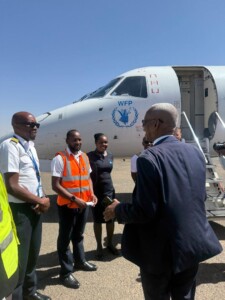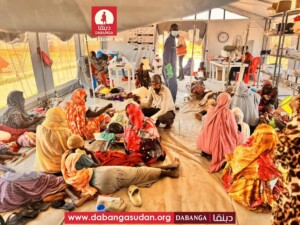North Darfur: 14 dead in 10 days
Gunmen driving vehicles and riding motorcycles, horses and camels have killed 14 people, wounded eight, burned 11 villages, looted mills, and have stolen 15,000 head of cattle in Tawila locality, North Darfur, in the last 10 days, community leader from North Darfur Abdallah El Tajani said at a press conference in Nyala yesterday.
 A torched village near El Fasher, North Darfur, in April 2020 (RD correspondent)
A torched village near El Fasher, North Darfur, in April 2020 (RD correspondent)
Gunmen driving vehicles and riding motorcycles, horses and camels have killed 14 people, wounded eight, burned 11 villages, looted mills, and have stolen 15,000 head of cattle in Tawila locality, North Darfur, in the last 10 days, community leader from North Darfur Abdallah El Tajani said at a press conference in Nyala yesterday.
Not all the dead have yet been buried, El Tajani said. He stated that the villages in Tawila locality “have been under constant attack”.
Abdallah El Tijani said that the violent attacks have caused the complete displacement of 11 villages. Some 15,000 displaced people are now staying in other areas, including Katur, Shangil Tobaya Camp and Zamzam Camp south of the North Darfur capital El Fasher. They are living in harsh conditions, without shelter or food. Families have been separated.
The community leader called on the government to urgently call upon humanitarian and international organisations to provide food and shelter for the displaced, and assistance to bury the bodies of the dead. He called on the government “to assume its full responsibilities”, pointing to the fact that these recent violent attacks took place under the watch of the police and the army. He said that this brings to mind “the events of 2003”, when the war in Darfur started.
El Tijani stated that the attackers had passed by several army bases and police stations when they came to attack the villages in Tawila.
Villagers from Tawila have accused the Rapid Support Forces (RSF) of taking part in the attacks. They stated that the vehicles and armament used in the attacks “can not be owned by ordinary gunmen”.
North Darfur wali
The wali (governor) of North Darfur, Mohamed Arabi, said in an interview with North Darfur State Radio that the state security situation is now stable. He pointed to eight reports of violent deaths in all localities of the state over the past month. He also said that the agricultural season was successful and that there was no friction between farmers and herders.
He admitted that there has been an increased number of armed robberies in Kutum, Kabkabiya, El Sareif Beni Hussein and Saraf Omra localities, but said that the state government has addressed the situation by sending security forces to accompany vehicles on the road connecting Kutum and Tina.
He noted that the new joint Peace Shield Forces have been deployed to North Darfur to protect civilians.
Wali Arabi stated that the conflict in El Malam, East Jebel Marra locality in South Darfur, represents the greatest security threat. He said that 1,500 families have recently arrived in Tawila locality from that area, including 1,000 children, 10 of whom were unaccompanied. He appealed to people to provide relief to the newly displaced people.
He assessed both attacks on the joint United Nations-African Union Mission in Darfur (UNAMID) bases, and tribal conflicts as security threats.
He also said that ambulances were not available in all of the state’s localities, and that five of UNAMID's vehicles will be converted into ambulances.
ACJPS
The New York-based African Centre for Justice and Peace Studies (ACJPS) documented two incidents involving attacks on civilians in villages in East Jebel Marra in South Darfur and Tawila locality in North Darfur from 24-25 January 2020. In a statement, ACJPS says that “these attacks have left tens of civilians dead, injured, and missing and displaced thousands”. According to ACJPS the government of Sudan should immediately put in place measures to protect civilians throughout Darfur. ACJPS also calls on Sudanese authorities carry out an independent investigation into the attacks and hold perpetrators to account.
Radio Dabanga’s editorial independence means that we can continue to provide factual updates about political developments to Sudanese and international actors, educate people about how to avoid outbreaks of infectious diseases, and provide a window to the world for those in all corners of Sudan. Support Radio Dabanga for as little as €2.50, the equivalent of a cup of coffee.












 and then
and then